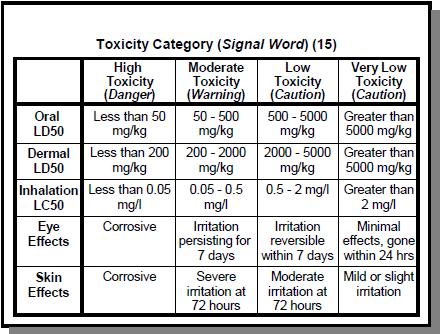Concerns have been raised over the long term effects of consumption of Bt Corn and animals fed with it. One of the main issues revolves around the idea that the insecticidal agent, Delta Endotoxin (DE), may cause harmful effects in humans. This concern is exacerbated due to the fact that, aside from certified organics, 100% of corn syrup used in the United States, which is found in a large percentage of processed foods, contains sugars derived from GM corn. The question is whether or not this toxin is harmful to humans, and if it persists in relevant quantities in corn syrup and other products derived from Bt Corn.
Toxicity in Humans
Currently, nearly all research suggests that Bt toxin poses no real danger to humans (www.epa.gov). A common argument posed by those who feel BT Corn is unsafe for human consumption is that there is pesticide in every cell. While this may be true, the term ‘pesticide’ is highly inclusive, and does not necessarily indicate toxicity to humans due to fundamental and vast physiological differences between insects and humans.
The Bt Toxin, a crystal protein, is activated in the digestive system of certain species of insect. The protein causes the insects’ digestive tract to swell and deteriorate, which is a fatal reaction. This reaction is exclusive to only certain genera of insect (Ghosh et al. 2001). A much different physiological reaction takes place when humans consume this compound, however.
Studies carried out by Monsanto show no toxicity to humans whatsoever due to the fact that the delta endotoxin protein is broken down and metabolized by the human digestive system without complication (www.epa.gov). Most protein toxicity in humans is relatively acute and occurs in limited exposure to small doses. The Bt toxin was given to test subjects in relatively large quantities (4,000mg/kg) and showed no signs of metabolic or oral toxicity (Sjobald, Roy D., et al. 1992).
Some minor toxicity was exhibited in lab rats after prolonged exposure to very high levels of DE toxin, primarily liver inflammation, decreased activity, fatigue and decreased weight gain (http://npic.orst.edu/factsheets/BTgen.pdf).
More studies carried out by Monsanto show that DE toxin is rapidly and easily degraded through heat and/or even mildly acidic conditions such as exposure to digestive enzymes in vitro (www.epa.org). This evidence suggests that the processing of Bt Corn into corn sugars such as high fructose corn syrup (HFCS) will effectively inactivate the toxins. Studies analyzing the amount of DE toxin in HFCS and its toxicity to insects remain inconclusive. The largest remaining concern for human health would be allergic reaction due to accumulation of un-metabolized DE protein.
Testing on lab rats and human volunteers showed that toxicity of DE was very low to none. Deliniations can be observed in the chart below, cited from http://npic.orst.edu/factsheets/BTgen.pdf:

Allerginicity in Humans
Food allergies, according to a host of current research, are extremely resistant to neutralization through heat, acid and proteases (digestive enzymes). These allergenic agents tend to occur in very high concentrations and are glycosylated. Unlike these food allergens, DE toxin is rapidly degraded in vitro by digestive fluids (www.epa.gov).
Remaining Health Concerns
It is worth mention that various studies have not been conducted in regards to long-term health effect of DE toxin. Current EPA regulation only requires cancer and reproductive/birth defect studies when significant adverse health complications are suggested by initial testing (http://npic.orst.edu). Since DE toxin demonstrated no acute toxicity in mammalian studies, the effects of DE in terms of reproduction and cancer formation have not been studied.
Finally, it is important to note that Monsanto, the company responsible for the development and commercialization of Bt Corn, is solely responsible for testing the safety of their product and reporting their findings in their honest entirety to the FDA and EPA. In the past, there have been serious conflicts of interest when corporations are given freedom to regulate their own products' safety.
<-PREVIOUS NEXT->
Comments (1)
Tyson said
at 12:48 am on Nov 7, 2008
Despite decades of widespread use of Bacillus thuringiensis as a
pesticide (it has been registered since 1961), there have been no
confirmed reports of immediate or delayed allergic reactions to the
delta-endotoxin itself despite significant oral, dermal and inhalation
exposure to the microbial product. -- www.epa.gov
You don't have permission to comment on this page.